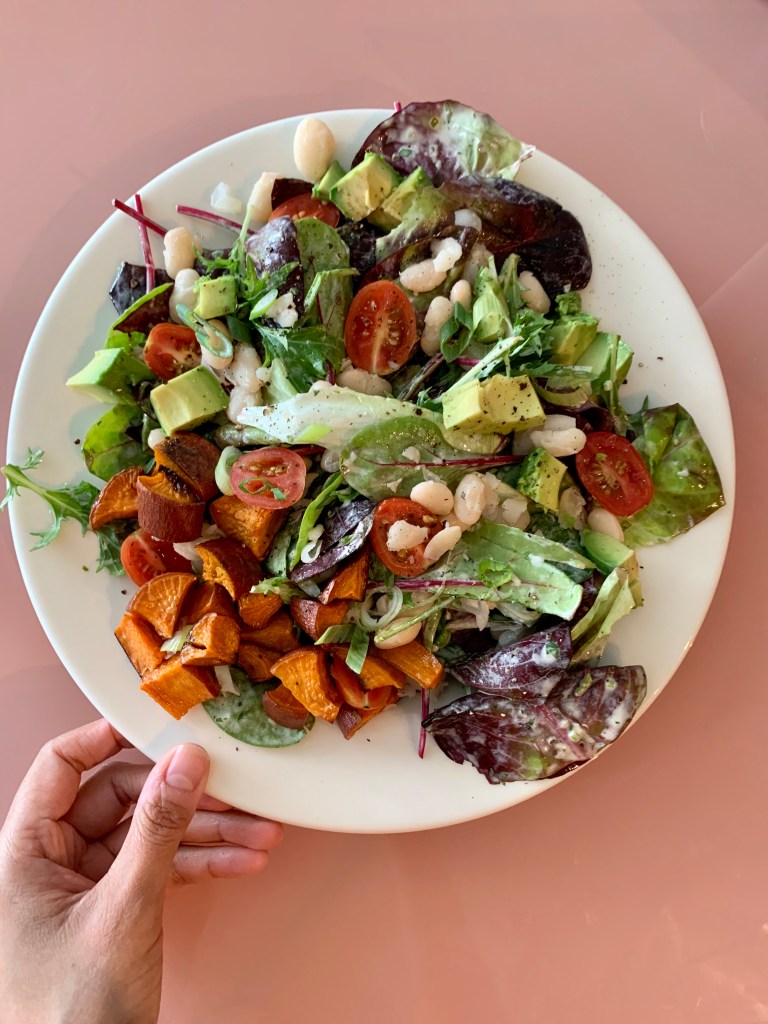
When California’s stay-at-home orders were implemented in March, it seemed like we were at peak no-contact, coronavirus vigilance: All but essential businesses like grocery stores and hospitals were permitted to stay open, while everything else–restaurants, gyms, salons, malls–were ordered closed. In response to limiting my (and risking others’) exposure in grocery stores, I thought it would be practical to sign up for a produce delivery service. This is particularly relevant today, several days into California’s latest modified stay-at-home order.
While I have access to a number of worthy produce delivery options in San Diego, I chose Imperfect Foods for their mission to “rescue” misshapen and discolored, or excess fruits and veggies otherwise earmarked for the dumpster. Unfortunately (and rather ironically), as food insecure as the U.S. is, including in San Diego, Americans create a comparable amount of food waste.
And since receiving my first produce box in May, I’ve learned a few things about their goods, and their delivery process that I both enjoy and am more mindful of when I’m meal planning for the week—which doesn’t always happen because I live an obscenely short walk to a Mexican restaurant that makes a tasty California burrito, and easy no-cook dinner option. If you’re considering replacing or supplementing your in-person grocery trips with a grocery delivery service like Imperfect Foods for social distancing reasons or otherwise, I’ve gleaned the following takeaways after shopping and cooking with Imperfect Foods produce for six months that might prove insightful.
How It Works
In brief: Choose from a weekly box template of conventional or organic produce, which is made up of surplus inventory and completely edible, yet “imperfect” fruit and veg. Then, receive an email indicating when it will be time to make your produce selection. Typically, you have several days to edit and confirm your order. Each week, you’ll be able to view what Imperfect Foods has filled your box with, though you can totally remove items from your box, increase the number of existing items; or add new items, including meat (ground beef to pork chops), seafood (like lump crab and trout or salmon fillets), grains (I’ve added wild rice once), and dairy products (including eggs). You can also choose to skip a week as needed, as well as donate a box of produce on occasion, like I did during Thanksgiving week.
Things To Know When You Sign Up for Imperfect Foods
- Customization: When available, you can choose to always have certain items delivered (in my case, that’s shallots, avocados, garlic, lemon, and limes). On the other hand, you also have the option to never have a certain item included in your box. Regarding the delivery schedule itself, you do have the option of skipping a week (or weeks) if necessary, which I opt for when I know I won’t be cooking as often. This was the case during summer, when San Diego County reopened some semblance of restaurant dining.
- Shelf Life: I’ve learned that produce tends to spoil quicker than produce purchased at the typical grocery store, so I’ve found it helpful to have a plan for them in the several days immediately following my box delivery. Or if I don’t plan to use produce up right away, I’ll chop it up and throw it in the freezer for another time. Conversely, I was surprised that some fruits (such as the red pears, and blueberries when available) lasted a bit longer than expected.
- (Free?!) Extra Produce: Occasionally I’ll receive a few extra shallots, avocados, and squash from what I originally ordered. Is it a mistake? Or are they trying to move inventory? Whatever it is, I’m not complaining; though this means I sometimes end up dumping the additional produce because I didn’t have enough time to work it into my weekly meal plan before they spoiled. One week, I unexpectedly received a bunch of slightly withered kale that I did not use because I picked up greens from the grocery store just days before. As efficient as I try to be with the food I bring into the house, sometimes waste does happen.
Edible Things I’ve Made So Far With Imperfect Foods:
- Bon Appetit’s carrots with avocado and mint as a side dish to baked chicken
- Pears with peanut butter and cinnamon snack
- Green goddess (shallot) kale salad with sweet potato, avocado, pepitas
- Hot chocolate with oat milk and cacao powder
- I doctored store-bought marinara with summer squash, shallots, mushrooms
- Guacamole using limes + avocados (which were smaller than what the grocery stores usually stock)
- Sinigang, a tangy Filipino stew traditionally flavored with tamarind, using kabocha squash
Connect with The Curious Passport
- Keep up with my real-time travels and eats from San Diego and beyond on Instagram
- Join me on Facebook
- Support my immersive, sensorial travel and food journalism: send me a coffee!


